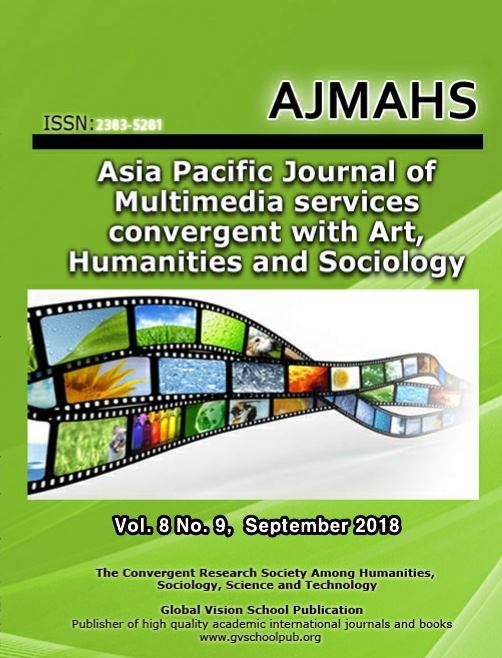켈트족 낭만의 여성 담론으로서 “Eliduc”
“Eliduc” as a Female Discourse of Celtic Romance
- 인문사회과학기술융합학회
- 예술인문사회융합멀티미디어논문지
- 8권 9호
-
2018.09125 - 132 (8 pages)
- 44

이 논문의 목적은 20세기 후반에 출간된 John Fowles의 소설집 The Ebony Tower에 중세 프랑스문학 “Eliduc”의 짧은 번역본을 수록한 저작동기로서 켈트족 낭만의 실체와 담론을 구체화하고, 첫번째 작품 “The Ebony Tower”와의 연결점을 조명하는 것이다. 그 결과 사실상 작품 후기에 해당하는 “A Personal Note”를 “Eliduc”의 서문으로 이용하는 작가의 의도가 봉건 제도와 기독교 그리고 기사도적 사랑을 다룬 Marie de France의 원작의 주인공 Eliduc가 “The Ebony Tower”의 David보다 자아의 진정성에 더 충실함을 상징적으로 표현하려는 것이 발견된다. 뿐만 아니라 더 흥미로운 사실로 여성 등장인물들을 이 작품의 주인공으로 본다면 더 많은 변주와 담론이 논해질 수 있음이 드러난다. 이러한 추론은 성적 솔직함과 실제 행동양식에 대한 포스트모더니즘 의식을 반영하는 것이며, 시간과 공간에 따라 서로 다른 문화가 존재하므로 구조주의 또는 모더니즘 비평이 당시 모든 작가들과 작품들을 지배할 수 없다는 것을 강조한다.
This paper aims to shape up the true nature and discourse of Celtic romance as the motive for putting the little translation of “Eliduc,” a French literary work produced in the Middle Ages into John Fowles’s collection of short stories called The Ebony Tower and illuminate its linking point with the first work “The Ebony Tower.” As a result, the writer discovers the intention that the writer tried to use “A Personal Note,” virtually a sort of review of a work, as a preface of “Eliduc” is to symbolically show that Eliduc, the protagonist of Marie de France’s original text, which treats the feudalism, Christianity, and chivalrous love is more faithful to the authenticity of self than David in “The Ebony Tower.” Besides, it is revealed that more interestingly more variations and discourses are to be discussed if the female characters are treated as the protagonists. This inference is meant to reflect a sense of post-modernism regarding the candor in sexuality and the real patterns of behavior and emphasize that the structuralist or modernism criticism can not control all the authors and their works because there exist different cultures regarding time and space.
1. 서론
2. 켈트족 낭만의 부활과 변주를 통한 담론
3. 여성 주인공 Guilderuec와 Guilliadun의 자기인식에 대한 해법
4. 결론
(0)
(0)